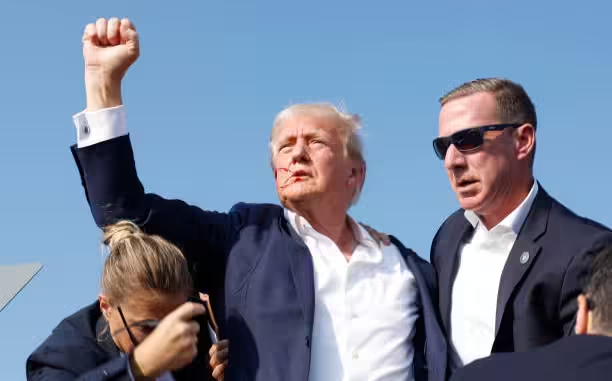
Trump’s Controversial Admiration for Hitler’s Generals: Analyzing Leadership Styles and Ethics
In a surprising revelation, former Chief of Staff Mark Meadows has brought to light Donald Trump’s reported admiration for the leadership style of “Hitler’s generals.” This comment not only raises eyebrows but also opens the door for a deeper examination of leadership styles and the historical contexts behind them.
The Context of the Statement
Meadows’ remark was made during his testimony, providing insight into Trump’s mindset during his presidency. While this is not the first time Trump has been linked to controversial figures or ideologies, referencing Hitler’s generals brings forth significant questions about leadership, authority, and the ethical implications of such admiration.
Understanding Leadership Styles
Leadership styles often reflect the values and principles of those in power. Trump’s presidency has frequently been characterized by a confrontational approach that prioritizes loyalty over expertise. Here are some critical aspects to consider:
Authoritarian vs. Democratic Leadership
Authoritarian leaders demand obedience and loyalty, reminiscent of tactics employed by historical figures like Hitler. In contrast, democratic leaders promote participation and collaboration. Trump’s admiration for authoritarian figures may contribute to a chilling effect on democratic principles.
The Dangers of Militaristic Admiration
When leaders express a desire for militaristic efficiency, they may tread into dangerous territory. While the effectiveness of military leaders in strategy and discipline can be appealing, this admiration raises ethical concerns about governance, human rights, and the foundational values of leadership.
The Role of Historical Memory
Admiring figures associated with horrific actions can lead to the normalization of those behaviors. It is crucial for historical memory to prevent the repetition of past mistakes. Leaders have a responsibility to learn from history rather than romanticizing it.
Public Reaction and Implications
This revelation has sparked significant public discourse, with many expressing outrage at what they see as a troubling reflection of Trump’s leadership style and priorities. This incident highlights broader conversations about the moral and ethical responsibilities of leaders, especially those in positions of power.
Moving Forward: Lessons for Future Leadership
As society navigates the complexities of leadership within a democratic framework, several lessons can be drawn from this incident:
Prioritize Ethical Leadership
Leaders should strive for integrity, accountability, and a commitment to democratic values. This focus can help build trust and create a more collaborative political environment.
Embrace Historical Awareness
Understanding the past is essential for informed decision-making in the present. Leaders must remain vigilant against the allure of authoritarianism and learn from historical mistakes, including those associated with Hitler.
Encourage Open Dialogue
Public discussions about leadership styles should be welcomed. Citizens must engage in conversations about the qualities they value in leaders and hold them accountable for their actions and statements.
Conclusion
Mark Meadows’ statement about Trump’s admiration for “Hitler’s generals” serves as a powerful reminder of the importance of ethical leadership and historical awareness. As society continues to grapple with the implications of various leadership styles, prioritizing values that uphold democracy, human rights, and accountability is crucial.
By doing so, we can work toward a future where leadership is defined by integrity, compassion, and respect for all individuals. As engaged citizens, it is our responsibility to be vigilant and proactive in shaping the leadership we desire in our world.

Leave a Reply